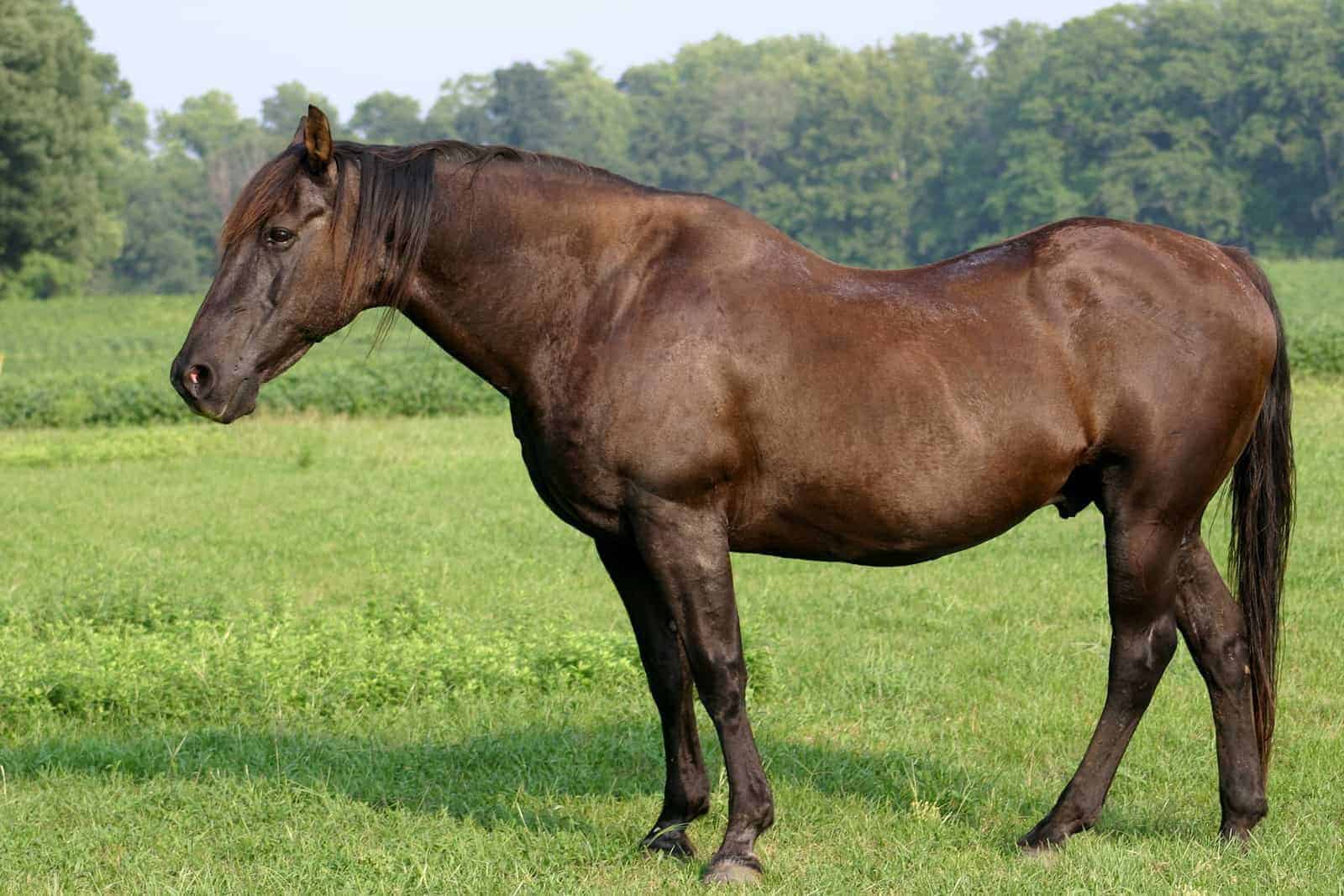Equine Metabolic Syndrome: Not a New Problem
- Topics: Cushing's Disease, Diagnosing Hoof Lameness, Diagnosing Lameness, Diseases and Conditions, Hoof Care, Hoof Problems, Horse Care, Kentucky Equine Research Conference 2018, Lameness, Laminitis (Founder), Metabolic Problems, Metabolic Syndrome, Older Horse Care Concerns, Sports Medicine, Welfare and Industry

Perhaps you’ve had equine metabolic syndrome, or EMS, on your radar for the last decade or so. Or maybe your veterinarian first explained it a few years ago, when he thought your obese pony might be at risk for some of the disease’s dangerous side effects, such as acute laminitis. You might only have realized its importance recently, maybe after seeing friends or barnmates struggling to keep their horses with insulin dysregulation (ID, abnormal insulin responses), chronic laminitis (in which the leaflike laminae that suspend the coffin bone within the foot become inflamed or fail and separate from the coffin bone and the hoof wall, allowing the bone to rotate or sink), or both as healthy as possible through spring grass growth, lush summer pastures, and fall pasture sugar spikes.
In reality, however, veterinarians and researchers have been recognizing, dealing with, and studying this syndrome and its side effects for centuries. At the 2018 Kentucky Equine Research Conference, held Oct. 29-30 in Lexington, Kentucky, Pat Harris, MA, VetMB, PhD, Dipl. ECVCN, MRCVS, reviewed how our understanding of EMS has changed over the years and current thoughts on it. Harris heads the WALTHAM Equine Studies Group, in Leicestershire, England, and is the only RCVS-recognized U.K. specialist in veterinary clinical nutrition (equine).
“Metabolic disease in horses is not new,” she said. “Aristotle, for example, most likely referred to laminitis around 350 BC as ‘barley disease,’ presumably because it was associated even then with excessive consumption of grain
Create a free account with TheHorse.com to view this content.
TheHorse.com is home to thousands of free articles about horse health care. In order to access some of our exclusive free content, you must be signed into TheHorse.com.
Start your free account today!
Already have an account?
and continue reading.

Related Articles
Stay on top of the most recent Horse Health news with


















